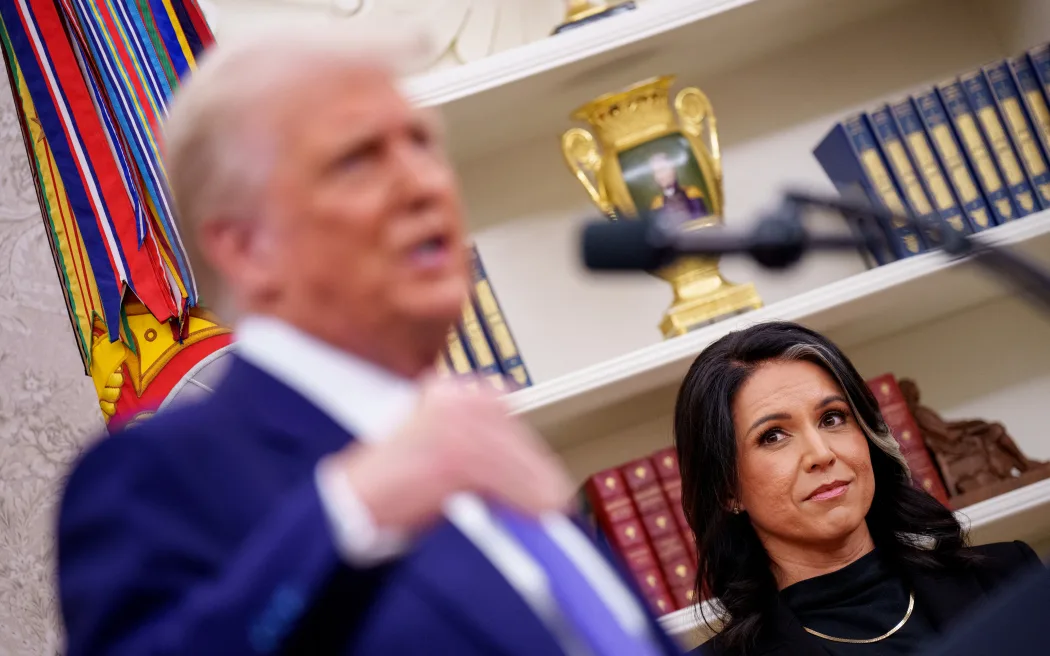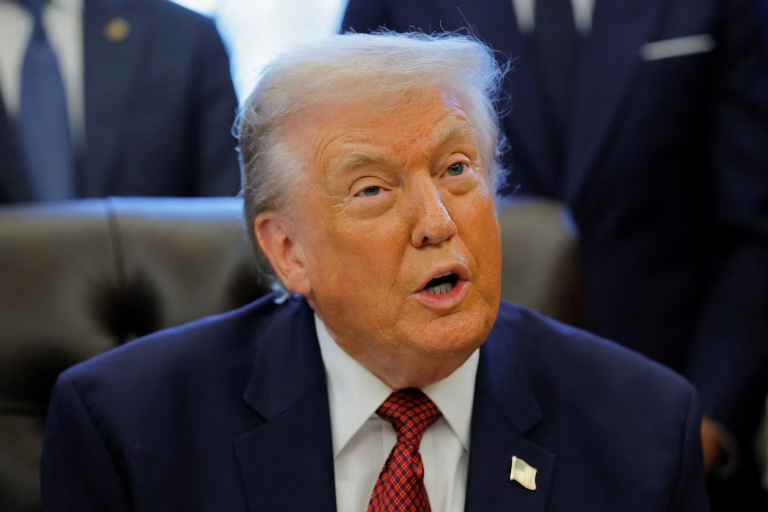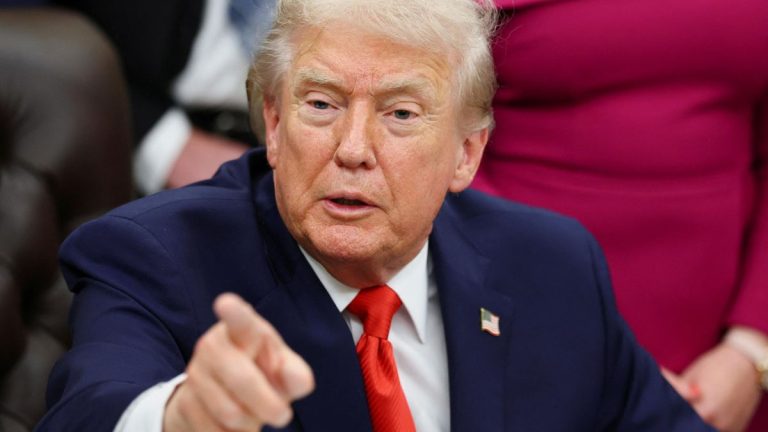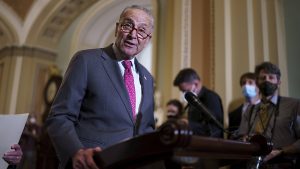WASHINGTON — Director of National Intelligence Tulsi Gabbard has revealed new details about a high-profile border operation that, according to intelligence officials, underscores President Donald Trump’s determination to take direct aim at transnational criminal networks operating along the U.S.–Mexico border.
During an interview on Fox & Friends Weekend, Gabbard confirmed the mid-October arrest of Leonardo Daniel “El Pato” Martinez Vera, a senior commander in Mexico’s Sinaloa Cartel. Martinez Vera is accused of overseeing kidnapping, extortion, and smuggling operations across multiple Mexican states.
According to Gabbard, the successful capture resulted from coordination between U.S. and Mexican authorities using intelligence gathered by the Office of the Director of National Intelligence (ODNI) and its National Counterterrorism Center.
A Quiet Operation With Wide Implications
The arrest took place on October 15, though details were withheld until this week. Gabbard described the case as “a model of cooperation” between U.S. intelligence services and their Mexican counterparts, adding that the operation demonstrated Washington’s renewed resolve to dismantle cartel networks that threaten American communities.
“Yes, it’s very significant,” Gabbard said when asked if the capture carried a wider message. “Our people worked tirelessly to make this happen, and they did it even while many have gone unpaid because of the current government shutdown. That shows real commitment.”
She explained that the mission’s success sent a clear signal to “the plaza bosses who have run our southern border” in previous years.
“This operation reflects President Trump’s seriousness,” Gabbard said. “It tells every cartel operator that the days of impunity are over.”
Intelligence at the Center
Officials said the takedown of Martinez Vera stemmed from an ODNI-led investigation tracking cartel logistics through encrypted communications and satellite data.
“We will not allow cartel gangs who target Americans to roam freely, whether in the U.S. or across the border in Mexico,” Gabbard noted in a follow-up statement. “Our team at NCTC is on the watch, preparing for the moment to strike.”
The intelligence chief praised her analysts and field officers for their work “under extremely difficult fiscal conditions,” referring to the ongoing shutdown that has delayed pay for many federal employees.
Political Friction Over Federal Pay
The shutdown, now in its 25th day, has highlighted a new round of partisan tension on Capitol Hill. Senate Democrats voted last week to block temporary funding that would have covered federal workers’ pay during the impasse.
Republican lawmakers criticized the move, calling it “a political miscalculation” at a time when national security operations remain active. Gabbard stopped short of assigning blame but said the situation “shouldn’t stand in the way of protecting the American people.”
The intelligence community, she added, “doesn’t pause because Congress disagrees.”
A Broader Strategy Against Cartels
The Trump administration has made cross-border crime a central pillar of its second-term agenda. Earlier this year, the State Department officially designated the Sinaloa Cartel, MS-13, and Venezuela’s Tren de Aragua as Foreign Terrorist Organizations — a move that grants U.S. agencies expanded authority to target their finances and leadership.
Analysts say the step effectively merges counterterrorism tools with counternarcotics policy, allowing federal agencies to freeze assets and pursue international prosecutions under terrorism statutes.
“This classification increases both pressure and risk for cartel leadership,” said one intelligence official familiar with the new strategy. “It also signals a willingness to treat these organizations as transnational threats, not just criminal enterprises.”
Border Trends Shift Sharply
Data from U.S. Customs and Border Protection show that illegal crossings have fallen dramatically since early 2025. The agency recorded 2.47 million migrant encounters in fiscal 2023, the highest in U.S. history, compared with roughly 458,000 during Trump’s final pre-reelection year.
Since the beginning of his second term, those numbers have declined month over month, a shift administration officials attribute to new enforcement protocols and expanded cooperation with Mexican authorities.
Even some Democratic leaders have acknowledged the change. Illinois Governor J.B. Pritzker, a frequent critic of the president, told Fox News last week that “the situation at the southern border has markedly improved.”
“We don’t have the problem that existed before with people coming across the border,” Pritzker said.
Unexpected Praise Across the Aisle
Pritzker was not alone. Vermont Senator Bernie Sanders, a prominent independent who caucuses with Democrats, recently offered rare praise for Trump’s border strategy.
Appearing on The Tim Dillon Show, Sanders said the current administration “did a better job” handling border enforcement than President Biden.
“So long as we have nation-states, you’ve got to have borders,” Sanders said in the interview. “If you don’t have any borders, then you don’t have a nation.”
He added, “Trump did a better job. I don’t like Trump, but we should have a secure border, and it isn’t that hard to do.”
The remarks, which quickly spread across social media platforms X and YouTube, marked one of Sanders’s sharpest breaks from the Democratic mainstream on immigration.
“I’m not going to sit here and tell you that overall [Biden] did a good job — it was not,” Sanders concluded.
An Operation Meant to Deter
According to Gabbard, Martinez Vera’s arrest sends an unambiguous message to others engaged in similar activity.
“If they try to resort to their own games of bribery and all of this other stuff, they will be putting themselves in the target,” she said during her Fox appearance.
A senior U.S. official who spoke on background said that the administration views the operation as “both symbolic and operational.”
“Symbolically, it reaffirms deterrence,” the official explained. “Operationally, it demonstrates that U.S. intelligence has reach — even into cartel strongholds once thought untouchable.”
Recalibrating Security Priorities
Policy analysts note that Gabbard’s leadership of ODNI has coincided with a broader reorganization of how intelligence agencies track cross-border threats. The National Counterterrorism Center, once focused almost exclusively on foreign extremist groups, has expanded to include cartels and smuggling networks deemed capable of threatening U.S. citizens.
That shift has drawn bipartisan interest, with lawmakers from both parties pressing for more data on cartel operations and their financial pipelines.
“The intelligence community is effectively merging two problem sets: terrorism and organized crime,” said a senior analyst at the Center for Strategic and International Studies. “The overlap is growing, and this administration is treating it that way.”
Domestic and International Reaction
In Mexico City, officials at the Secretaría de Seguridad y Protección Ciudadana confirmed cooperation with U.S. agencies but declined to comment on the specifics of Martinez Vera’s capture.
A brief statement said only that the suspect “was detained without incident and remains in federal custody pending extradition proceedings.”
Regional experts view the development as part of a longer-term trend of closer law-enforcement coordination.
“The pressure from Washington has increased,” said Mexican security analyst María Serrano. “But the cooperation channels have also improved significantly over the past year.”
A Measured but Firm Message
Gabbard’s comments capped a week of headlines for the intelligence chief, who has maintained a low public profile since taking office earlier this year. Her remarks framed the operation not only as a tactical win but also as an example of morale within the intelligence community despite political gridlock in Washington.
“This arrest shows what can be done even in difficult times,” she said. “The men and women of the intelligence community continue to protect the nation no matter the circumstance.”
While Gabbard did not disclose whether additional operations are planned, she indicated that similar missions are underway. “We are watching, preparing, and ready to act,” she said.
As she left the studio, Gabbard reiterated that the administration’s border campaign would continue “as long as criminal groups threaten Americans.”
For now, the capture of one cartel leader appears to mark both a symbolic milestone and a preview of more aggressive enforcement to come.

Sarah Mitchell is a bestselling novelist recognized for her insightful and emotionally resonant stories that explore the complexities of human relationships. Originally from Denver, Colorado, Sarah grew up in a family of teachers who nurtured her curiosity and love for storytelling. She studied psychology at Stanford University, where she became fascinated by the intricacies of human behavior—an interest that would later shape her writing career. Sarah’s novels are praised for their nuanced characters, intricate plots, and ability to capture the subtle tensions that define love, friendship, and family ties. Her breakthrough novel, The Spaces Between Us, became an instant bestseller, lauded for its honest portrayal of strained family relationships and the fragile bonds that hold people together. Since then, she has published several works that continue to captivate audiences around the world. Outside of her writing career, Sarah is passionate about mental health advocacy and often partners with organizations to promote awareness and support for those struggling with emotional well-being. Her personal life is quieter—she enjoys hiking in the Colorado mountains, practicing yoga, and spending time with close friends. With each new book, Sarah Mitchell cements her reputation as a writer who illuminates the beauty and struggles of human connection.









